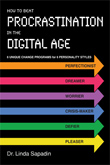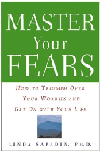Who is the person you speak to most frequently?
 Why it’s you, of course.
Why it’s you, of course.
And what is the nature of those conversations? Do you tend to be harsh, nasty and punitive about who you are and what you’ve done (or haven’t done?) Do you frequently expect too much of yourself? Are you your own worst enemy? Does your self-judgment pierce your heart, deflate your energy?
If so, it’s time to take up two challenges to change your inner voice from foe to friend.
The first challenge is to develop another voice in your head, one that is kind and reassuring. It needs to remind you that “it’s okay; we all make mistakes.” It needs to assure you that what you did (or didn’t do) isn’t so bad. This voice accepts your faults, acknowledges your weaknesses and gently encourages you to do better tomorrow.
This is no easy task. For, if your inner voice is accustomed to being discouraging and demoralizing, developing a caring and reassuring voice will be hard to do. Yet, it won’t be as hard as the second challenge.
The second challenge requires you to eradicate that old voice from childhood that tells you, “you’re not good enough.” No matter what you do, you could have done it better. No matter who you are, you don’t measure up. No matter how you look, you don’t look good enough. It doesn’t matter what others say; you know the truth.
Archaic thoughts are tough to eradicate because whatever you repeat to yourself over and over again, you come to believe. It doesn’t matter if it’s true, has an iota of truth to it, or is patently false.
Lots of people don’t pay attention to their inner voice. Hence, they don’t recognize how much it may be holding them back. You can’t fix what you’re not aware of. So, make it a point to notice what you say to yourself. And label it: friend or foe.
Each time your inner voice is a friend, give yourself a well-deserved fist pump.
Each time your inner voice is a foe, change your harsh judgment to a kinder assessment. An example:
Instead of referring to yourself as a naive fool, notice how you messed up. Then create a strategy for doing better next time. Old habits die hard. Hence, it may take a while to notice a significant change. But be assured that each small step in the right direction brings you closer to what you want to do and who you want to be.
© 2014
“A real friend is one who walks in when the rest of the world walks out.”
Walter Winchell




